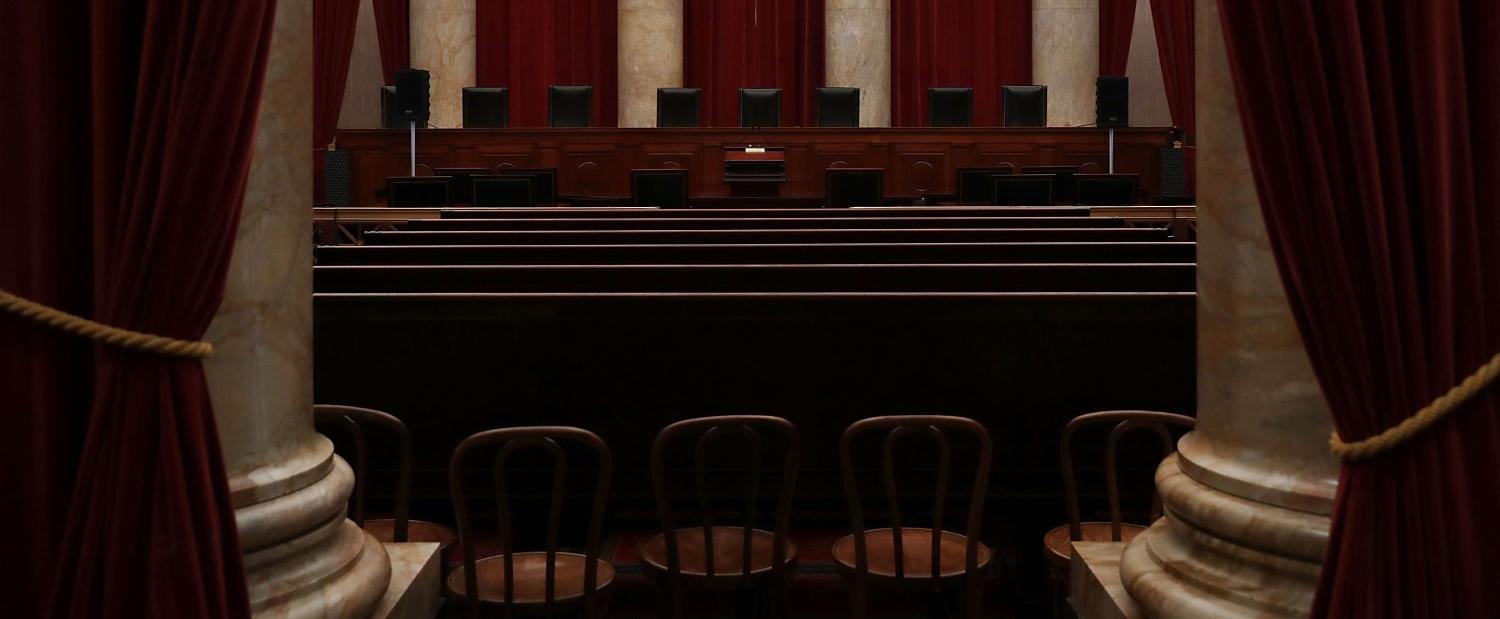The presidency is just the beginning; making sure no authority is foisted upon the people is the American way, which means said people face a very long list of choices at the polling booth. County Boards of Elections exercise considerable ingenuity in the design of multi-page ballots that include Congress, state legislators, judicial positions, county commissioners and supervisors, and often a question or two on City finances tacked onto the end.
Possibly the most important positions likely to be decided through this election are not even on the ballot. The term of the next president is likely to coincide with more Supreme Court vacancies (in addition to the one left by Justice Antonin Scalia earlier this year), given the age of Justices Ruth Bade Ginsburg (83), Anthony Kennedy (80) and Steven Breyer (78), and speculation over the possible retirement of Justice Clarence Thomas.
If a President Trump were to make appointments that would tip the balance toward a conservative Supreme Court and, as has frequently happened before, a state regulation on abortion is referred for ruling, there would be an opportunity to revisit Roe v Wade, which effectively made abortion legal across all 50 states. When the presidential candidate confirmed as much during the third presidential debate, he locked in the votes of many in the pro-life camp whose vote for president is always cast as a vote against abortion. As David Cohen writes in ThinkProgress, if one more vacancy was created:
...the Roe math is easy. If Clinton wins the election, her two new justices would create a six-to-three majority on the Court in favor of Roe. However, if Trump wins, his two new justices would form a five-to-four majority to overturn Roe. The threat to Roe is real.
This issue can also influence how voters choose their Congressional members. Election day comes around with monotonous regularity for the 435 members of House of Representatives whose terms run for just two years, while one-third of senators (who serve six-year terms) also have their job on the line this week. The makeup of the new Senate, which plays a role in Supreme Court appointments and approving or rejecting treaties, will be a nail-biter tonight, with the Democrats needing a net gain of four seats to gain a majority.
Some state governors, lieutenant governors, attorney generals and auditors are also a little nervous, with 12 gubernatorial elections taking place today.
Then there are a slew of judicial appointments, commissioners (including the state education commissioners and school board members, who control a state’s education department) and some positions that probably not too many people think about between elections (such as soil and water conservation district supervisors).
Voters don’t have to made a decision about every position on the ballot, and for some there is only one candidate anyway. Those who are running for a contested position sometimes have difficulty attracting attention. The Democratic Mayor of the Cleveland region of Newburg Heights, Trevor Elking, has been trying to persuade a few Democratic registered voters he knows who have Donald Trump signs in their yards (‘I’ve been surprised by the number of those signs in my neighbourhood,’ Elking said) to also publicly demonstrate their support for Sherrie Miday, the Democrat-endorsed candidate who hopes to be elected one of the 34 judges serving on the Common Pleas bench in Cuyahoga county. These judges hear both civil and criminal cases ranging from theft to murder. If successful, Miday would be the first Eygptian-American to become a judge in the US, Elking believes. But he’s had trouble whipping up enthusiasm. ‘The presidential race has sucked out all the oxygen in the room,’ he said ruefully.
Over in North Carolina, the Charlotte Chamber senior vice president of policy, Natalie Haskins English, is among those who want the voters of Mecklenburg County to vote yes to authorise new bonds issues by the City of Charlotte that would raise just over $200 million to be spent on transportation, housing and neighbourhood improvements. The bonds proposal is on page six of the ballot – so far down there is some concern folk may have voting fatigue by the time they get there. ‘It’s really important for all of us in the city for this to get through,’ she said.
Photo: Getty Images/Alex Wong
